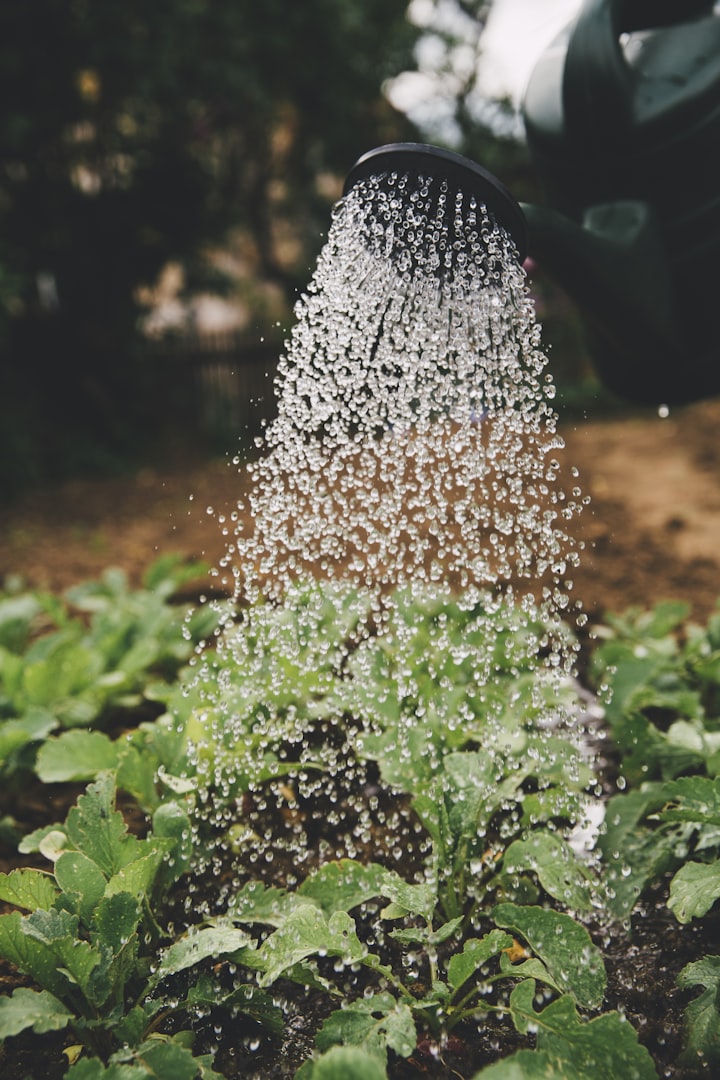Sustainable Agriculture: Nurturing the Earth and Feeding the Future
Exploring Innovations and Practices for a Greener Tomorrow

In a world of increasing population and environmental challenges, the future of agriculture stands at a critical crossroads. As we strive to feed a growing global population while mitigating the impacts of climate change, sustainable agriculture emerges as a beacon of hope. This multifaceted approach to farming not only ensures the production of food but also safeguards the planet's natural resources for future generations. In this comprehensive exploration, we delve into the importance of sustainable agriculture, its innovative practices, and its potential to address some of the most pressing challenges of our time.
The Urgency of Sustainable Agriculture
The challenges facing agriculture today are daunting. A growing global population is expected to reach 9 billion by 2050, requiring a significant increase in food production. At the same time, climate change, soil degradation, water scarcity, and biodiversity loss threaten the very foundations of our agricultural systems. In this context, sustainable agriculture offers a promising solution to the dilemma of "how to feed the world without destroying it."
Conservation of Natural Resources
Sustainable agriculture places a strong emphasis on the conservation of natural resources. Practices such as crop rotation, cover cropping, and reduced tillage help maintain soil health and fertility. This not only ensures the long-term viability of agriculture but also reduces soil erosion and the need for chemical inputs.
Climate-Resilient Farming
Climate change is already impacting agriculture through extreme weather events, altered precipitation patterns, and increased pest pressures. Sustainable agriculture promotes the use of climate-resilient crops and practices like agroforestry, which integrates trees and crops to enhance both productivity and resilience.
Efficient Water Management
Water scarcity is a growing concern worldwide. Sustainable agriculture promotes efficient water management through techniques like drip irrigation and rainwater harvesting. These practices not only conserve water but also reduce the environmental impact of agriculture.
Biodiversity Conservation
Agriculture has been a major driver of biodiversity loss, with monoculture cropping and habitat destruction threatening countless species. Sustainable agriculture encourages biodiversity through practices like polyculture, which involves growing multiple crops in the same field, and the preservation of natural habitats on farms.
Reduced Chemical Inputs
Conventional agriculture often relies heavily on synthetic pesticides and fertilizers, which can have negative environmental and human health effects. Sustainable farming methods prioritize the use of organic and natural inputs, reducing the ecological footprint of agriculture.
Innovations in Sustainable Agriculture
Sustainable agriculture is not merely a return to traditional farming methods but also a hotbed of innovation. Researchers and farmers are constantly developing new techniques and technologies to improve the sustainability of agriculture.
Precision Agriculture
Precision agriculture employs technologies like GPS, drones, and sensor networks to precisely manage crop inputs. By optimizing the use of water, fertilizers, and pesticides, farmers can increase yields while reducing waste and environmental impact.
Vertical Farming
In urban environments, vertical farming represents an innovative approach to sustainable agriculture. It involves growing crops in stacked layers indoors, using controlled environments and LED lighting. This method reduces the need for arable land and allows year-round production.
Aquaponics and Hydroponics
Aquaponics and hydroponics are soil-less farming methods that use nutrient-rich water to grow plants. Aquaponics combines plant cultivation with fish farming, creating a closed-loop system that maximizes resource use efficiency.
Genetic Engineering for Sustainability
Genetic engineering has the potential to create crops that are more resilient to climate change, pests, and diseases. For example, drought-resistant varieties can thrive in water-scarce regions, reducing the environmental impact of irrigation.
The Global Impact of Sustainable Agriculture
The shift toward sustainable agriculture has far-reaching implications for global food security, environmental conservation, and human well-being.
Food Security
Sustainable agriculture practices enhance food security by making farming more resilient to climate change and other challenges. They also promote local food systems, reducing dependence on long-distance food transportation.
Environmental Conservation
Sustainable agriculture contributes to the conservation of ecosystems, soil, and water resources. By reducing the use of synthetic chemicals and promoting biodiversity, it helps preserve the planet's natural heritage.
Economic Viability
Sustainable agriculture can be economically viable for farmers. Practices that reduce input costs, increase yields, and improve soil health can lead to long-term profitability.
Social Equity
Sustainable agriculture often prioritizes social equity by promoting fair labor practices, supporting small-scale farmers, and fostering community engagement in food systems.
Conclusion
Sustainable agriculture is not merely a concept; it is a practical solution to some of the most pressing challenges of our time. By conserving natural resources, adapting to a changing climate, and fostering innovation, sustainable agriculture offers a path forward to ensure that we can feed the world while nurturing the planet. Embracing sustainable agricultural practices and supporting policies that promote them is not just an option but a necessity if we are to build a greener, healthier, and more equitable future for all. As we face the complex interplay of food security, environmental conservation, and economic prosperity, sustainable agriculture stands as a beacon of hope, offering a vision of a more sustainable and resilient world.





Comments
There are no comments for this story
Be the first to respond and start the conversation.